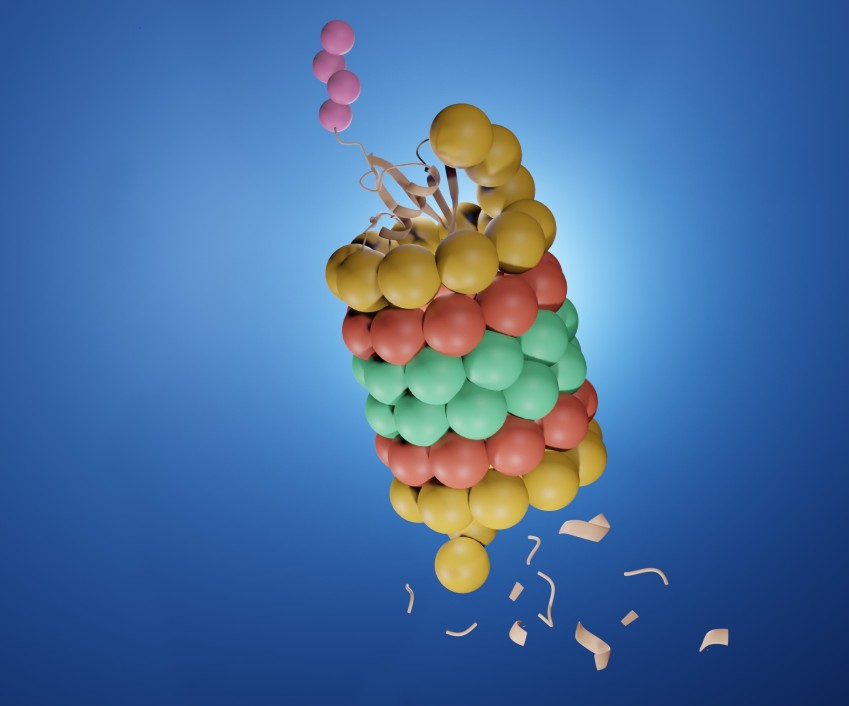Protein degradation plays an important role in cellular activities and is a post-translational modification necessary for protein quality control and cell survival. In eukaryotic cells, the proteasomes or lysosomes are the major sites of protein degradation. Proteasomes are able to recognize and break down misfolded proteins and they have a defined geometric proteolytic catalytic center that breaks down proteins to produce peptides with specific lengths which can then be further cleaved into amino acids by cytosolic aminopeptidases.
Lysosomes are membrane-bound organelle-like structures containing various proteases responsible for degrading protein aggregates and membrane proteins. Proteins to be degraded are transported to lysosomes through, for example, the ATGs/signaling/regulatory system, and subsequent proteolysis is catalyzed by endoproteinases that are matured and activated within the lysosome. Lysosomal aminopeptidases and carboxypeptidases continue to break down the peptides into amino acids and other products (such as sugars and cholesterols). This degradation process is important for cell survival when cells are under stress such as nutrient limitation.
Protein degradation can be studied using radioactive-based methods that are informative on an overall level. Information about the degradation steps that occur to individual proteins can be obtained through in vitro experiments with individual model proteins/peptides and proteases. However, it is worth noting that in vitro experiments cannot truly represent the situation in vivo. It is less possible to detect overall cellular protein degradation in vivo because protein degradation occurs too rapidly to be analyzed.

As an expert in protein research, Profacgen has developed a mass spectrometry (MS)-based method to study protein degradation on a proteome-wide scale. Our technology platform is composed of experienced researchers and advanced equipment, which can obtain information in multiple aspects, by using high-precision tandem MS (i.e., MS/MS) to sequence the protein degradation intermediate peptides, in order to analyze protein degradation on a proteome scale. In addition, we can also identify peptides of various lengths and termini with expected/unexpected post-translational modifications, identify the origins of peptides, check the protein origins for the peptides and sub-cellular location of these proteins, etc., to obtain more detailed information for a deeper understanding of the molecular mechanisms and processes of protein degradation.
Profacgen has accumulated lots of experience in PROATCs. Our professional technical team can provide customers with high-quality tandem MS and many related featured services for protein degradation research. Our competitive prices and extensive expertise have earned us the trust of our collaborators. Contact us to find out how Profacgen could be of assistance.
References
Fill out this form and one of our experts will respond to you within one business day.